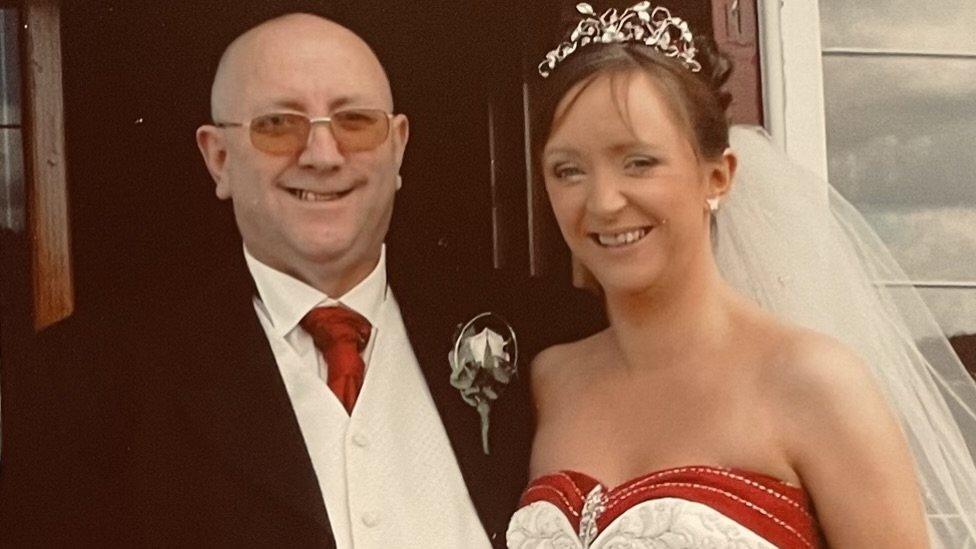Covid Inquiry: Stormont ministers 'found wanting' during pandemic
- Published
Voices of those who lost loved ones to Covid
Stormont ministers were "found wanting" when it came to making difficult decisions around Covid-19, according to the former head of the Northern Ireland civil service.
Sir David Sterling also said local ministers had not shown strong leadership.
The comments were revealed in communications published as part of the UK Covid-19 inquiry.
On Tuesday the inquiry began three weeks of hearings in Belfast.
More than 4,000 people in Northern Ireland died with the virus during the first two years of the pandemic.
The inquiry will assess political decision-making, mental health and care homes as it gathers evidence about the UK's response to the pandemic.
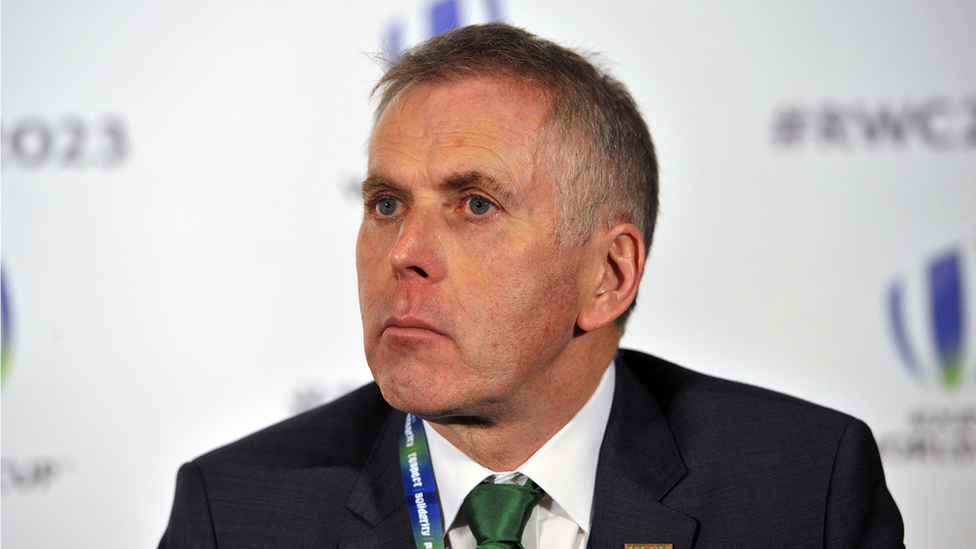
Sir David Sterling said local ministers had 'been found wanting'
In an email exchange with Peter May, the permanent secretary of the Department of Justice, Sir David said ministers had been "too quick to retreat into campaigning or community activist-mode".
He added that they "have got away with this partly because [the government] has thrown so much money at mitigation that they haven't had to take many difficult decisions".
"Yet when they have (eg school closure and defining "essential" businesses) they have been found wanting."
"I can't even begin to imagine how our local politics will play out when this ends," he concluded.
In the email sent on 31 March 2020 he described the civil service as having "stepped up well but the effort is not well-balanced with almost a third of staff at home and able to work, but not yet doing so".
'Political dysfunction'
Earlier the inquiry heard how political dysfunction and a legacy of mistrust hampered Northern Ireland's preparedness for the pandemic.
It heard how Northern Ireland's chief medical officer Prof Sir Michael McBride had been frustrated by Stormont politicians' apparent lack of communication and described them using a profanity on a WhatsApp message to the then health Minister Robin Swann.
Peter Wilcock KC, who represents the Northern Ireland Covid Bereaved Families for Justice Group said: "There is no doubt that these times were stressful for everyone involved."
Warning this article contains language some readers may find offensive
He added: "And that may well be why in the Autumn of 2020, Northern Ireland's chief medical officer Dr [Michael] McBride used uncharacteristically coarse language in exchanges with the Minister of Health when he wrote and I quote: 'Dysfunctional bastards, how will we ever get through this with an enemy within, I have a good mind to walk off and leave them to it, as no doubt do you, but then those that really matter, those whom they seem to have forgotten they represent are really depending on us."
It also emerged there are questions for the current head of the Northern Ireland Civil Service, Jayne Brady, about the wiping of electronic devices by former executive ministers.
Counsel to the Inquiry, Clair Dobbin KC, queried why minutes of a meeting in The Executive Office were "altered" not to include a reference to ministers' mobile phones being wiped.
Ms Dobbin said the inquiry team had met officials in Belfast last year, but there had been no mention of wiping ministers' phones.

The chief medical officer played a prominent role in NI's Covid response


The evidence presented to the inquiry painted Northern Ireland in a poor light in terms of how well political and health leaders were prepared for the pandemic.
Some families said it was a shocking and embarrassing day for Northern Ireland.
The lack of political respect felt between some politicians and the extent of how that impacted on keeping the public safe was laid bare.
Acrimonious executive meetings during those early days of 2020/2021 were common, leading to a delayed response when forming and delivering policy.
For journalists, the headlines kept coming.
It was revealed how then health minister Robin Swann told the executive that Northern Ireland had had seven weeks to prepare - others said the executive was "reacting and not leading".
The chief medical officer's WhatsApp to Mr Swann about political dysfunction paints a picture of disunity, disrespect, and disarray.
Northern Ireland was without doubt ill prepared.
That, according to the inquiry will be explored to see just to what extent it cost lives.

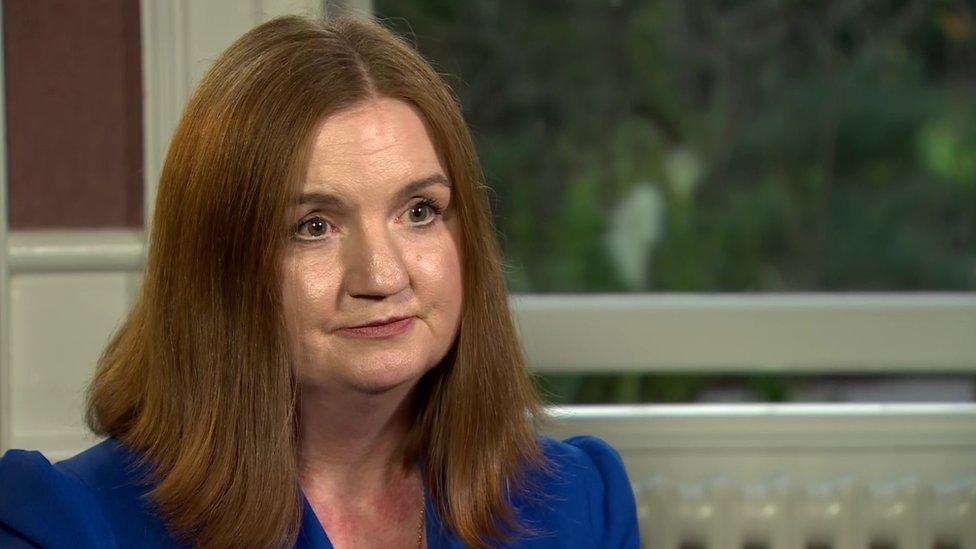
Jayne Brady is head of the civil service in Northern Ireland
The KC said the situation had cost the inquiry "many valuable months".
"Why did some ministers wipe their devices given that there was a clear instruction from Cabinet Office and instructions given internally within Northern Ireland government and by the Head of the Civil Service to retain data and information? That raises questions for ministers and for Ms Jayne Brady as well," Ms Dobbin said.
Ms Dobbin also said there was a siloing in decision-making and a "legacy of mistrust".
Bereaved Families for Justice NI said they hoped lasting change will come from their testimony.
Ms Dobbin said the latest statistics show an estimated 4,075 excess deaths from 1 March 2020 to the end of the year 2022.
"A bleak tally of life lost during the pandemic," she said.
She added that "relative to the spread of the virus Northern Ireland saw measures adopted relatively early" while England "had already reached a significant prevalence by the time measures came into place".
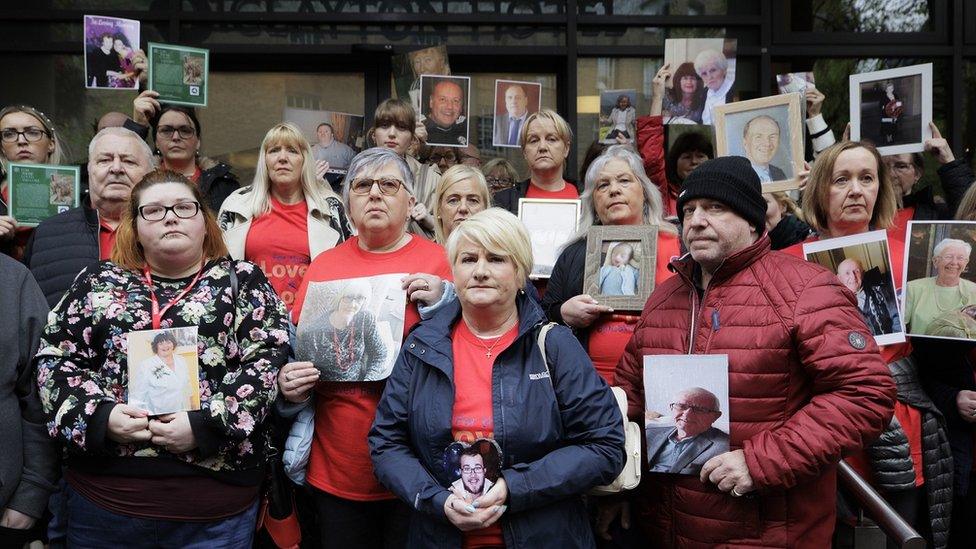
Bereaved families outside the Belfast hotel where the inquiry is being held
The chair of the inquiry, Baroness Hallett, said the initial hearings would focus on key political decision-making in response to the pandemic in Northern Ireland.
Lauren Mallon, whose uncle Raymond McAleese, died after contracting Covid in 2021, said she hoped the inquiry would lead to legislative change.
"He was just the most joyful soul and such a character. He brought so much life into all of our family."

Lauren said her uncle Raymond was a joyful soul
"Our most vulnerable people were let down in the pandemic - they were failed - and I don't want anyone else to go through that."
Martina Ferguson who spent nine months trying to visit her mother Ursula Derry, who had dementia, inside her care home, said she felt her mother's human rights were violated.
"Everybody in our bereaved group feel their rights were violated - and it didn't need to be like this."
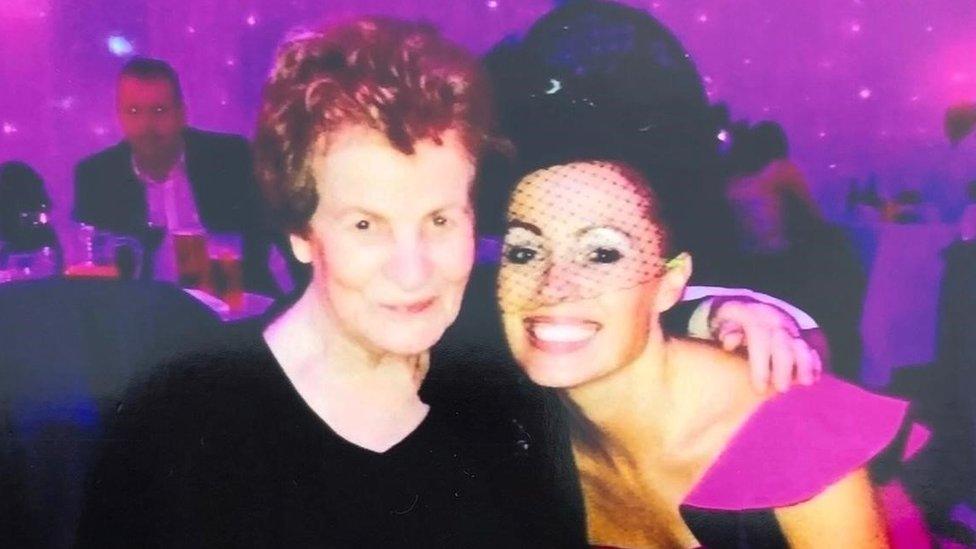
Martina was unable to visit her mother in her care home
In 2021, Ursula died in hospital after contracting the virus. Martina was by her side.
"We need to work through what went wrong, and learn from that," she said. "This must never happen again."
Anyone can share their experience through the inquiry's Every Story Matters project.
The report for the first area of the inquiry's work is due by early summer but it is not expected to conclude until sometime in 2026.
Related topics
- Published29 April 2024
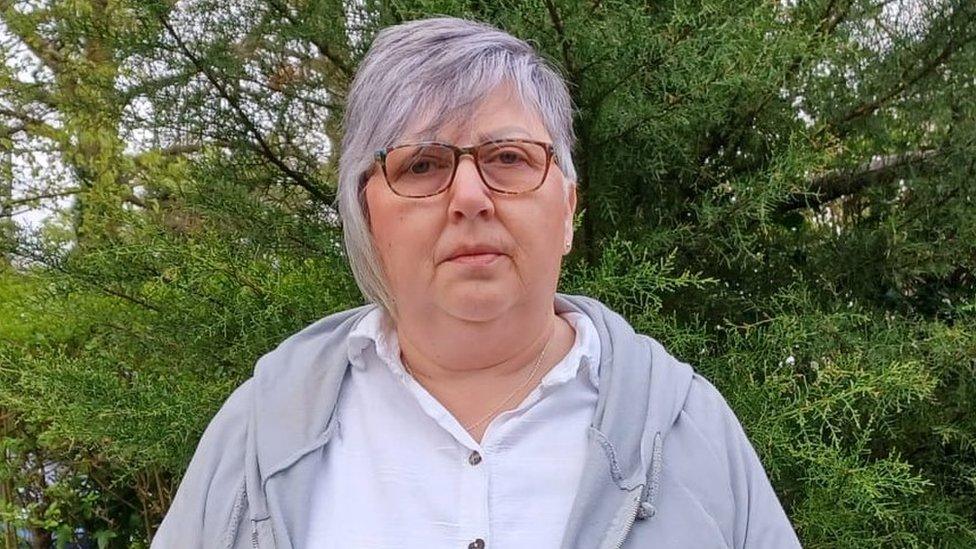
- Published3 November 2023
